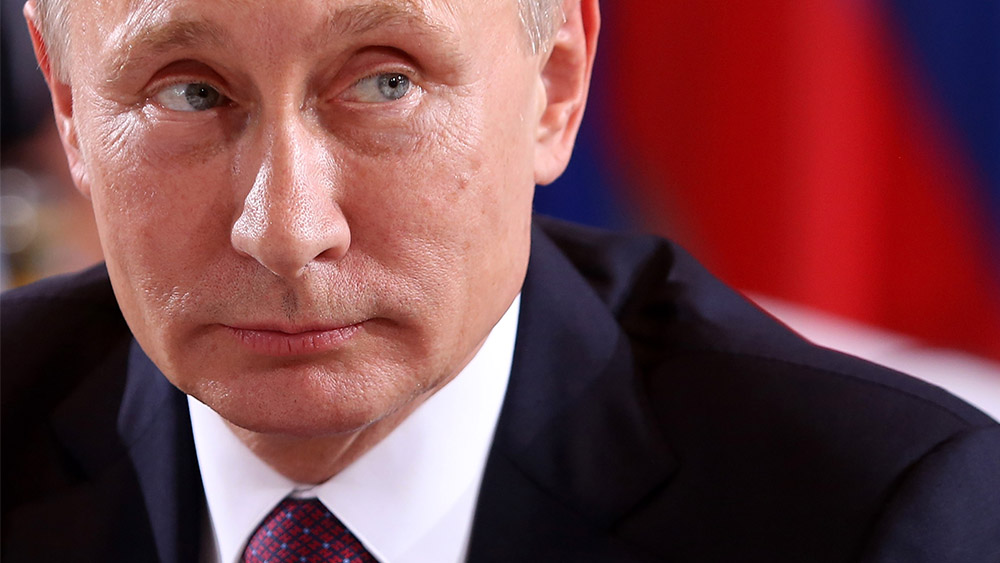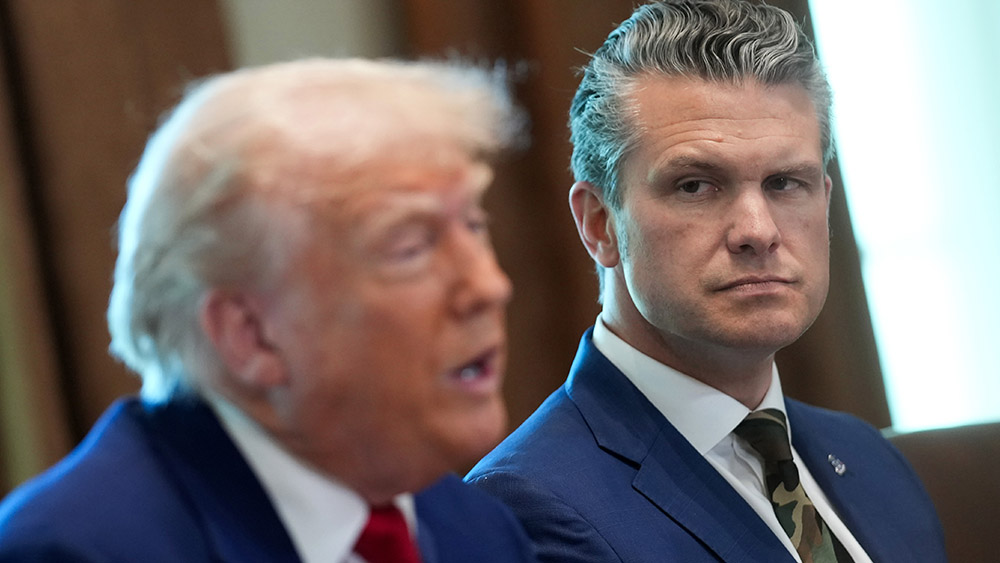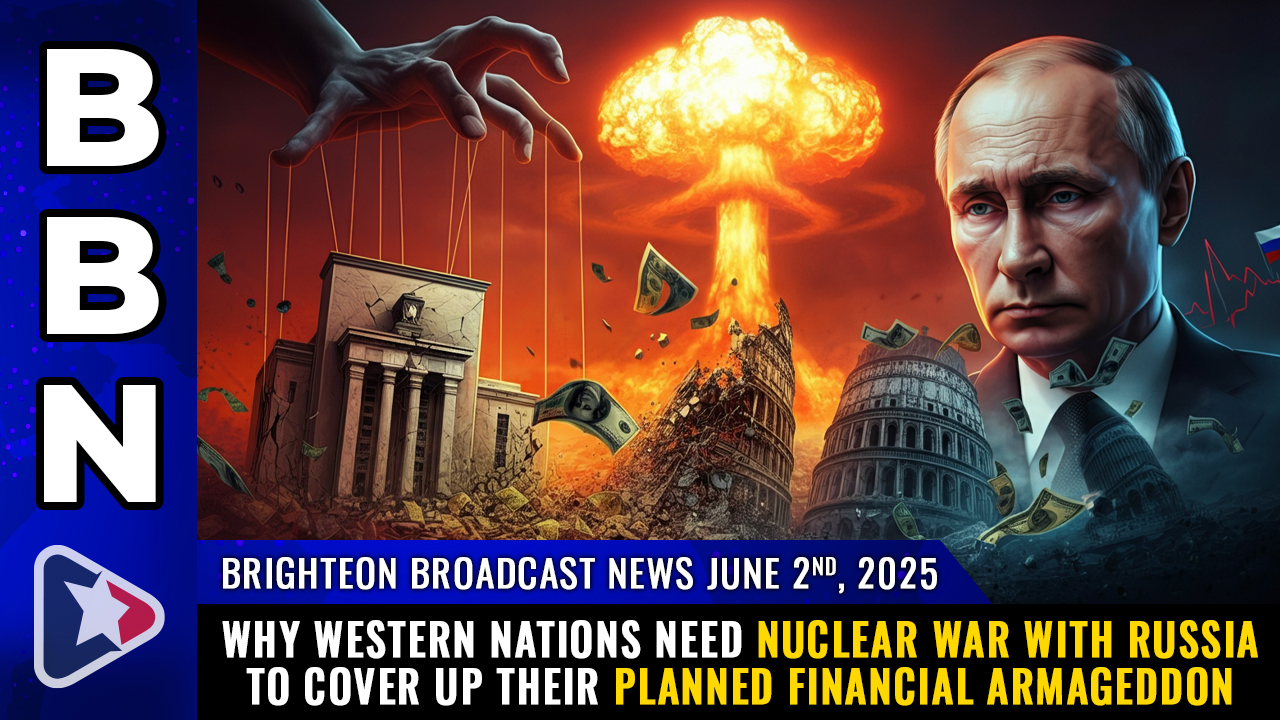 Parler
Parler Gab
Gab
- Ukraine and Russia prepare for Istanbul peace talks, but Kyiv demands Moscow reveal ceasefire terms before confirming attendance.
- Turkey proposes a high-level summit involving Trump, Putin, and Zelenskyy, but Russia rejects it, insisting on bilateral progress first.
- Ukraine accuses Russia of stalling and hiding unrealistic demands, refusing to send a delegation without prior disclosure of Moscow’s proposal.
- The U.S. sends mixed signals, with Trump’s envoy acknowledging Russia’s NATO concerns while Western frustration grows over continued Russian battlefield gains.
- Monday’s talks could lead to a temporary truce or collapse, with Ukraine pushing for an unconditional ceasefire and Russia demanding concessions on NATO and territory.
Turkey’s high-stakes diplomacy
Amid the standoff, Turkey has emerged as a key mediator, proposing a bold next step: a trilateral summit between Trump, Putin, and Zelenskyy, hosted by Turkish President Recep Tayyip Erdogan. Turkish Foreign Minister Hakan Fidan announced the idea Friday, calling it a natural progression after the Istanbul talks. But the Kremlin quickly dismissed the proposal, insisting that Russia and Ukraine must first make progress on their own. "First, results must be achieved through direct negotiations between the two countries," Peskov responded. The rejection underscores Moscow’s reluctance to engage in high-profile diplomacy without guarantees in a stance that aligns with its long-standing demands, including Ukraine’s neutrality, territorial concessions, and an end to NATO expansion.U.S. weighs in as battlefield tensions rise
As diplomatic wrangling continues, the U.S. has sent mixed signals about its role in the peace process. Retired Gen. Keith Kellogg, Trump’s envoy to Ukraine, acknowledged Friday that Russia’s concerns about NATO’s eastward expansion were "fair" and stated that Washington does not support Ukraine joining the alliance. Peskov welcomed Kellogg’s remarks, saying, "We are pleased that these explanations by the president are understood, including in Washington. And, of course, this is quite appealing to us in terms of the mediating role that Washington continues to play." Yet frustration is growing in Western capitals over Russia’s battlefield aggression. Just hours before the talks were announced, Russian forces claimed to have seized another village in northeastern Ukraine’s Kharkiv region in a clear signal that Moscow is negotiating from a position of strength. Zelenskyy warned that any pause in Western pressure would embolden the Kremlin. "Talks of pauses in pressure or easing of sanctions are perceived in Moscow as a political victory—and only encourage further attacks and continued disregard for diplomacy," he posted on social media.A make-or-break moment
With Ukraine demanding transparency and Russia refusing to show its hand, Monday’s talks could either pave the way for de-escalation or collapse before they begin. Kyiv insists on an unconditional 30-day ceasefire, a proposal first floated by Trump, while Moscow insists any truce must address its "root causes," including NATO’s presence near its borders. Will Russia and Ukraine finally take a step toward peace, or will this latest effort join the graveyard of failed ceasefires? Sources for this article include: YourNews.com Reuters.com BBC.com AlJazeera.comMore than 1,300 Israeli academics demand end to Gaza war, warn of “moral collapse”
By Laura Harris // Share
US-China tensions explode as US Defense Secretary Pete Hegseth warns of ‘imminent’ war
By Lance D Johnson // Share
Ukraine defaults on $665 million debt payment as war spending leaves creditors unpaid
By Cassie B. // Share
Provoking Armageddon: How western elites seek nuclear war to mask imminent financial collapse
By Finn Heartley // Share
Governments continue to obscure COVID-19 vaccine data amid rising concerns over excess deaths
By patricklewis // Share
Tech giant Microsoft backs EXTINCTION with its support of carbon capture programs
By ramontomeydw // Share
Germany to resume arms exports to Israel despite repeated ceasefire violations
By isabelle // Share









